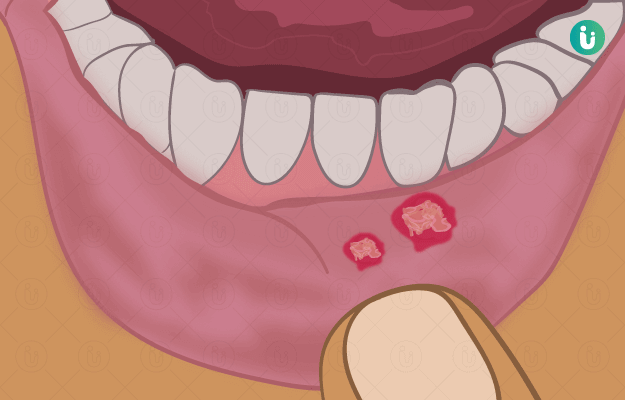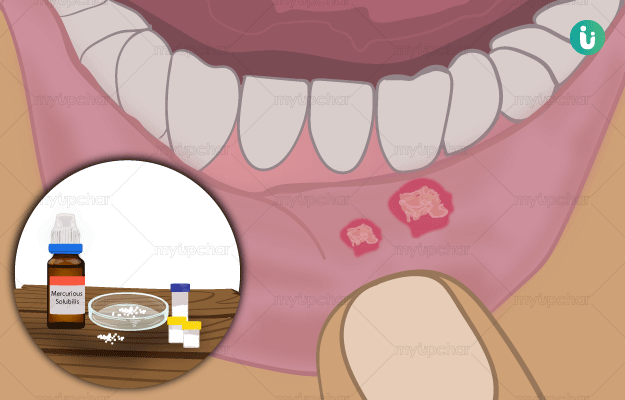Summary
A mouth ulcer is a commonly occurring condition in which there is an appearance of a tender sore accompanied by mild swelling and pain. It is primarily caused due to a damage to the membrane in the mouth since it is very delicate and sensitive. Mouth or oral ulcers are quite common in different age groups and can have several reasons that include an injury, nutritional deficiencies and poor oral hygiene. They are easy to diagnose on clinical examination and do not need blood tests. However, blood tests may be done to detect the cause of recurrent oral ulcers. Usually, a doctor will prescribe medication to expedite healing of the ulcer. There are several home remedies which are also helpful in healing mouth ulcers. The treatment of mouth ulcers is mostly primitive and involves the use of antimicrobial mouthwashes, vitamin B complex supplementation and topical pain-numbing gels. Prevention involves eating foods rich in vitamin B12 and folic acid.

 Doctors for Mouth ulcer
Doctors for Mouth ulcer  OTC Medicines for Mouth ulcer
OTC Medicines for Mouth ulcer
 Lab tests for Mouth ulcer
Lab tests for Mouth ulcer Mouth ulcer articles
Mouth ulcer articles

 First Aid for Mouth ulcer
First Aid for Mouth ulcer
 Home Remedies for Mouth ulcer
Home Remedies for Mouth ulcer
 Homeopathic Treatment of Mouth ulcer
Homeopathic Treatment of Mouth ulcer











 Editorial Team
Editorial Team

 Dr. Laxmidutta Shukla
Dr. Laxmidutta Shukla

 Dr. Rachita Narsaria
Dr. Rachita Narsaria











